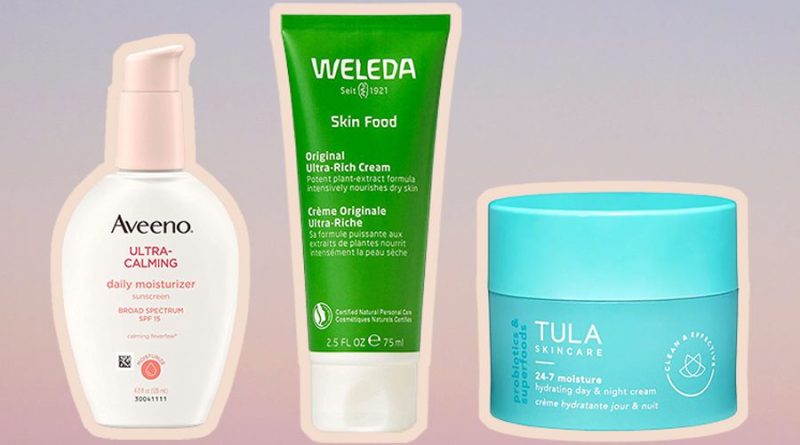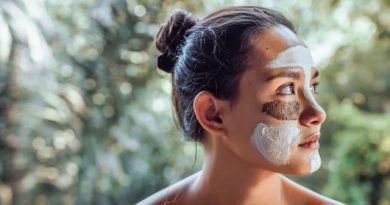A Guide to Rosacea Skin Care Products
Rosacea, a chronic condition affecting the blood vessels of an estimated 16 million Americans, may cause permanent damage to the skin if left untreated. Nearly half of all rosacea sufferers report that they have ocular rosacea in which the eyes are also affected by the condition.
This hereditary disorder, which can also affect other areas of the body besides the face, most commonly afflicts adults between the ages of 30 and 65. However, there have been cases reported of the condition affecting children as well. Women and people with fair or light-colored skin seem to be the most prone to acquiring rosacea. Some famous rosacea sufferers include former president Bill Clinton and W.C. Fields.
There are four stages of rosacea, pre-rosacea, mild, moderate, and severe rosacea. The condition can progress over time from one stage to the next, beginning with the frequent dilation of the blood vessels in the face, eventually leading to structural damage and vascular hyper-responsiveness.
The disorder, which can be painful at times, may begin with subtle redness near the center of the face, with eruptions gradually appearing on the nose, forehead, chin, and cheekbones. Treatment with products designed specifically for rosacea is necessary to control the redness and inflammation.
When the tiny blood vessels on the face dilate, red blotchy areas known as papules appear on the skin. A papule is a solid elevated lesion that has three general classifications: minor, moderate, and severe. Minor papules appear to be the size of a pimple or measles lesion, and a moderate papule is roughly the size of a pencil eraser.
Severe papules can be as large as the size of a coin and also contain pustules, which are inflamed bumps on the skin that are filled with pus. The delicate skin on the face can thicken, swell, and be tender to the touch.
To successfully treat the disorder, the correct type of products must be used that contain gentle ingredients that won’t exacerbate the condition.
When treating or caring for rosacea, carefully read all labels as skin care products should be rich with anti-inflammatory and anti-bacterial ingredients for the best long-term results.
An extract from a wildflower known as the Willowherb (Epilobium angustifolium), which is native to Russia, northern Europe, and parts of Canada, has both of these healing properties and is used in some rosacea skin care products. Used for centuries by native people to heal burns and skin inflammations, Willowherb reduces redness, soothes the skin, and has also recently been found to be a powerful antioxidant.
Vitamin K is another ingredient touted by many to be an essential element in treating rosacea due to its ability to help blood coagulate, or clot. In-depth scientific studies have proven that vitamin K strengthens the body’s blood vessels, including those small capillaries in the face.
Non-abrasive cleansers applied carefully to the skin with the fingertips, rather than a washcloth, regularly are one of the very best ways of controlling rosacea. The face should be washed using lukewarm water, never hot, and then blotted dry with a soft cotton towel.
People with rosacea should also avoid products with astringents, exfoliating agents, and any other ingredients that are too harsh for the most sensitive skin types. Men may also want to forgo using aftershave and certain shaving gels and creams that may irritate the skin.
If you must wear make-up, be sure to choose a product that is non-comedogenic as well as oil-free, and only apply light layers to your skin. Think of heavy make-up, such as oily foundations and concealers, as masks that trap oil and bacteria allowing them to clog the skin’s pores. These types of products merely aggravate skin conditions such as rosacea and should be avoided if possible. Instead, try to find gentle rosacea skin care products, including cleansers, make-up, and moisturizers, that are water-based.
A sunscreen of at least an SPF 8 should be worn every single day as the sun is often the most common cause of a flare-up. Other causes of irritation or flare-ups may be caused by products containing the following ingredients:
– menthol
– alcohol
– witch hazel
– peppermint
– eucalyptus and clove oils
Of course, individuals with rosacea should immediately stop using any product that burns, stings, or irritates the skin regardless of its ingredients. What triggers or irritates rosacea in one person may not even affect another, so dermatologists often recommend that patients keep a diary detailing any activities, foods, medications, and skincare products that may trigger a flare-up.
Rosacea skin care products containing medications such as benzoyl peroxide, erythromycin, and azelaic acid are useful in reducing flare-ups and the number of papules and pustules associated with the condition.




